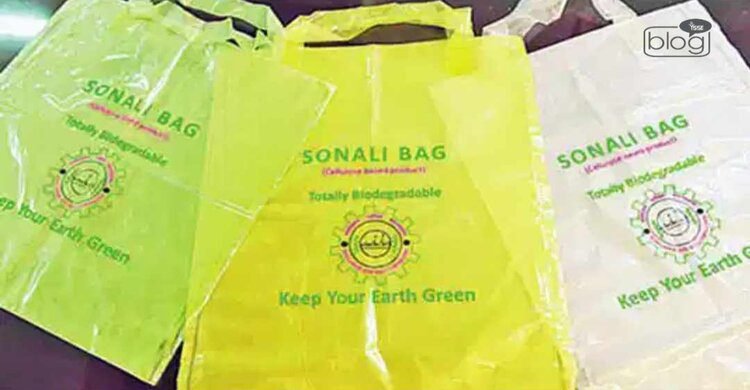Plastic & its presence in our lives
Plastic – a polymeric material that has been incorporated in every sphere of our life since its invention in the late 19th and early 20th century has been a revolutionary invention for its versatile, durable, cost-effective, consumer convenience characteristics.
Plastics can be molded into different shapes and sizes, which has allowed us to make things that used to be hard to create using materials like wood, metal, or glass. Plastics are often lightweight and highly durable. They resist corrosion, weathering, and chemical degradation, making them suitable for various applications, from packaging to construction to electronics.
The production of plastic materials can often be more cost-effective than traditional materials. Plastic or polythene is evident from grocery shopping to buying everyday materials like pens, file bags, etc.
Repercussions of using plastics
The extensive use of plastics has led to a global issue of plastic pollution, impacting environments worldwide, including Bangladesh.
This challenge isn’t unique to Bangladesh; it’s a global concern. According to the US-based Centre for Biological Diversity, up to 80 percent of plastic waste is in the oceans.
Plastic pollution then became the number one concern in addressing pollution faced in the environment. By the end of the 20th century, one of the most persistent polluters, plastic, was one of them. Due to its structural build, plastic could not biodegrade in nature, which threatened nature and wildlife.
It is time to think about plastic alternatives for a better future
To reduce the use of plastic bags, we should encourage eco-friendly alternatives that are easy to find and break down naturally. We also need to cut costs, or else environmentally friendly production cannot be feasible. A solution to the plastic pollution problem has made scientists think for decades. Many governments have made policies regarding the ban on the use of plastic. But the use of plastic was so much that it was unavoidable in our lives.
Invention of the “Sonali Bag”
That is when a Bangladeshi scientist named Dr. Mubarak Ahmad Khan developed the Sonali bag, a bag made from the bio-degradable polymer of jute. “Sonali Bag” was intended to be an alternative to our daily plastic bags, especially polythene bags.
Dr Mubarak Ahmed Khan is a Scientific Adviser of Bangladesh Jute Mills Corporation (BJMC). It was an invention that sparked excitement among environmentalists as it was a fantastic alternative to non-biodegradable plastic.
Jute is the most produced crop in Bangladesh; its fibers are also known as “golden fiber” for their ability to be spun into strong, shiny, coarse threads. Various environmental products can be made using jute fibers, like bags, curtains, caps, mats, etc.
Polythene bags were banned in Bangladesh in 2002 Because of environmental concerns.This move accelerated the research and development of natural fiber composite (NFC) materials as alternatives to polythene.
Dr. Mubarak Ahmad Khan worked with other Bangladeshi academics for decades to produce various NFC materials. Following that, in 2018, Bangladesh Jute Mills Corporation (BJMC) began commercial manufacture of the Sonali Bag using Mubarak Ahmad Khan’s jute-based NFC.
Sonali bags are recyclable and can hold up to 16 kilograms of goods in one bag. The longest time for the bag to decompose in soil is 2 to 3 months. Sonali bags can potentially replace and reduce the plastic pollution problem in Bangladesh, but mass production is not ongoing now due to being underfunded. If we can effectively incorporate the Sonali bag into our lives, we can significantly impact our pollution-free journey.
To read more blogs click here.
Writer,
Jannatul Afia Priya
Intern at Content Writing Department
YSSE

